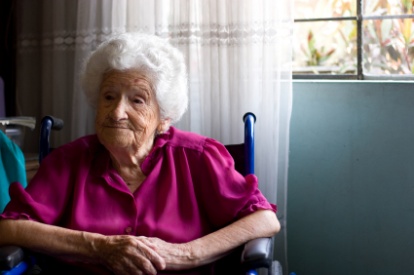 A New York State Senate Committee is considering measures to reform civil medical malpractice law. The issue is being considered in light of skyrocketing medical malpractice premiums that doctors have to pay. For example, an OB/GYN in New York City may pay $170,000 in premiums annually.
A New York State Senate Committee is considering measures to reform civil medical malpractice law. The issue is being considered in light of skyrocketing medical malpractice premiums that doctors have to pay. For example, an OB/GYN in New York City may pay $170,000 in premiums annually.
Doctors want to protect their interests by inducing the New York State legislature to enact various types of “reform,” including capping non-economic jury awards and offering legal immunity for doctors who apologize to patients.
Several facts should be considered by the legislature before taking away substantive rights from those who suffer preventable injuries at the hands of a small number of negligent doctors.
68% of medical malpractice payments in New York are paid by just 7% of the physicians. This seems to indicate that there is no widespread problem of doctors practicing medicine negligently. Rather, there are a few bad apples that are causing the higher medical malpractice premiums for the rest of the doctors.
Rather than limiting the rights of those patients who are injured at the hands of those few bad apples, perhaps the American Medical Association, or the State Medical Associations should consider taking a role similar to the one played by the state bar associations for lawyers.
The state bar associations play a very active disciplinary role when they learn of attorney negligence or misconduct. They routinely discipline attorneys in very damaging ways, including reprimand, temporary suspension of the law license, and complete revocation of the law license. Because of this reality, attorneys are very conscious of their obligations and “bad apple” attorneys are routinely booted from the active practice of law.
The state medical associations have steadfastly refused to take a similarly active role. This decision causes repeat medical malpractice offenders to continue offending and continue causing the malpractice insurance premiums for the rest of the doctors to increase.
Rather than focusing on limiting victims’ rights in medical malpractice cases, doctors’ lobbying groups should focus on preventing medically negligent injuries and deaths by policing their own ranks for the few bad apples.
800-344-6431
Picture courtesy of ER Drama.
When You (Or a Loved One) May be Entering a Nursing Home…
December 1, 2009
 If you, a spouse, or parent think that you may need the services of a nursing home in the near future, you should know that there are some things you can do to plan for this possibility and help maintain some of the person’s assets.
If you, a spouse, or parent think that you may need the services of a nursing home in the near future, you should know that there are some things you can do to plan for this possibility and help maintain some of the person’s assets.
Nursing homes can be very expensive. Residing on one can deplete $9,000 to $12,000 per month from one’s assets on a monthly basis. You can apply for Medicaid to assist with these bills, but they will only begin paying once the person has completely “spent down” their assets to$13,800 (in 2009) altogether.
There are steps that you can take which would allow you to preserve much of your assets for the next generation while still qualifying for Medicaid if and when nursing home services are needed.
When an individual applies for Medicaid, and the Department of Social Services is looking into whether the application has indeed depleted his or her assets down to almost nothing, they actually look up to five years prior to the application date to see if the person made any transfers to children or others in order to preserve their assets from Medicaid’s required “spend down” to poverty.
Elder law attorneys, such as the experienced lawyers at The Law Office of Elliot Schlissel, can assist individuals in applying for Medicaid or, for instance, setting up an Irrevocable Trust that may allow a senior to preserve his or her assets from Medicaid’s “spend down” requirement throughout their lives.
We can personalize these trusts depending on each individuals circumstances.
For instance, if someone has owned their home for a long time, such that the house has increased in value by $250,000 for individuals or $500,000 for married couples, and if the Irrevocable Trust does not appropriately deal with this increased equity in the residence, there can be significant tax liability when the house is sold.
Regardless of whether you need an Elder Law attorney to prepare a Medicaid application or create any other kind of Medicaid plan, you can contact our offices at 800-344-6431 or e-mail us with any questions or to set up a free consultation.
Picture courtesy of injuryboard.com.
 Established in 1978,
Established in 1978, 